Who hasn’t dreamed of traveling the world? Experiencing new places and cultures, backpacking through tremendous mountains or enjoying the beauty of white sand beaches. There’s an endless amount of opportunities when it comes to the adventures of being a traveler.
At the age of 27, Cassie De Pecol has become the youngest person to travel to all the countries in the world. De Pecol spent a little over 18 months traveling the globe, visiting country after country. She is the first woman to achieve this amazing task. Aside from being a woman, she is also American, born in the state of Connecticut.
Her travels began in her college years when she studied abroad to Costa Rica and Nicaragua. It was in 2010 when she and her brother decided to begin to see more of the world. It was a sum of $2,000 that enabled her to begin her travels. She traveled to countries in Europe and later Turkey. Aside from the money she initially saved she was able to continue to travel through working jobs at eco B&B’s and resorts. At the end of this two year trip, De Pecol visited around 25 countries. De Pecol titled her entire travel story “Expedition 196” and was able to share her story at The World Domination Summit in Portland, Oregon.
A lot of readers who have come across her story are curious as to how a journey as large as Expedition 196 was able to happen financially. De Pecol worked in many of the countries she visited throughout the 18 months of travel. The majority of funding came from sponsors that believed her passion and story should be shared with the rest of the world.
Nothing is impossible, and De Pecol is a living example of this. With lots of effort and self-motivation, she was able to fulfill her dream of getting to know more of the world we live in. It is spectacular women like herself that remind us that there is always a way to achieve your goals. Not only did she live out her dream, but she became an inspiration to everyone who reads her story.
Noteworthy Women encourages everyone, both men and women to take the stories of remarkable women such as Cassie De Pecol and use them as motivational reminders that we should always search for more: more knowledge, more meaningful experiences, and more growth. We congratulate Cassie on her amazing achievement and can’t wait to hear what’s next on her agenda!
You can follow Cassie’s Instagram to take a look at some of her travel pictures! You an also check out her Twitter!






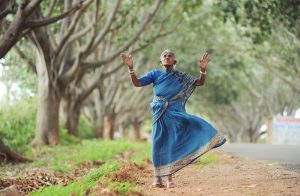 Saalumarada Thimmakka was born in a small town of rural India to a very poor family. Never having the opportunity to attend school, Thimmakka was running household chores at an early age and reared her family’s cattle and sheep. She met and married her husband, Sri Bikkala Chikkayya, who was also from poverty. It was not long into their marriage that the pair realized Thimmakka was infertile. The couple suffered from discrimination, stigma and ostracism, as having children in developing countries is considered the most significant role of a woman; the inability to fulfill this role classifies women as “worthless.”
Saalumarada Thimmakka was born in a small town of rural India to a very poor family. Never having the opportunity to attend school, Thimmakka was running household chores at an early age and reared her family’s cattle and sheep. She met and married her husband, Sri Bikkala Chikkayya, who was also from poverty. It was not long into their marriage that the pair realized Thimmakka was infertile. The couple suffered from discrimination, stigma and ostracism, as having children in developing countries is considered the most significant role of a woman; the inability to fulfill this role classifies women as “worthless.” Thimmakka and her husband decided to plant trees as their children. Together, the couple planted hundreds of trees and cared and nurtured them the same way they would have biological children. What began as a way to deal with the grief of infertility, led to Thimmakka planting as many trees as possible with the encouragement of her husband. The couple, who are avid environmentalists, saw this act of tree planting as a way to serve the environment, country and humanity. And while this commitment to watering and guarding each and every tree did not help them escape the ruins of poverty, it instead led them to become role models to the whole community. Thimmakka’s woodland has almost 300 trees and stretches on both sides of the road for 4km from her village to the next, which is remarkable considering the area’s arid conditions. The couple would have to lug water for several kilometers to ensure all trees were receiving ample amounts. Chikkayya has since passed but Thimmakka continues nurturing the trees and has no intentions of stopping.
Thimmakka and her husband decided to plant trees as their children. Together, the couple planted hundreds of trees and cared and nurtured them the same way they would have biological children. What began as a way to deal with the grief of infertility, led to Thimmakka planting as many trees as possible with the encouragement of her husband. The couple, who are avid environmentalists, saw this act of tree planting as a way to serve the environment, country and humanity. And while this commitment to watering and guarding each and every tree did not help them escape the ruins of poverty, it instead led them to become role models to the whole community. Thimmakka’s woodland has almost 300 trees and stretches on both sides of the road for 4km from her village to the next, which is remarkable considering the area’s arid conditions. The couple would have to lug water for several kilometers to ensure all trees were receiving ample amounts. Chikkayya has since passed but Thimmakka continues nurturing the trees and has no intentions of stopping.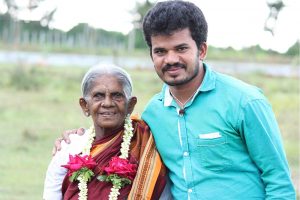 mesh possessed the same love for nature and preservation. He requested adoption from his biological parents and has been following in Thimmakka’s footsteps ever since.
mesh possessed the same love for nature and preservation. He requested adoption from his biological parents and has been following in Thimmakka’s footsteps ever since.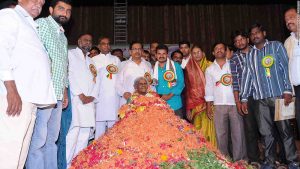 “How we planted and took care of the trees, everyone from children to the elderly should plant and grow trees. It will be beneficial for all of us.” – Thimmakka
“How we planted and took care of the trees, everyone from children to the elderly should plant and grow trees. It will be beneficial for all of us.” – Thimmakka
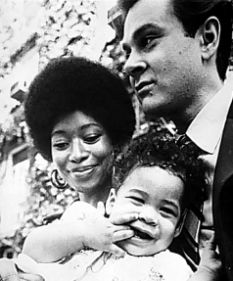



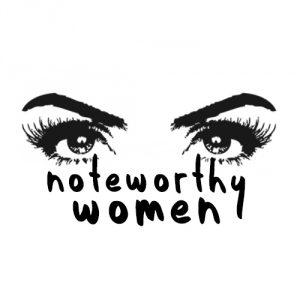
Recent Comments